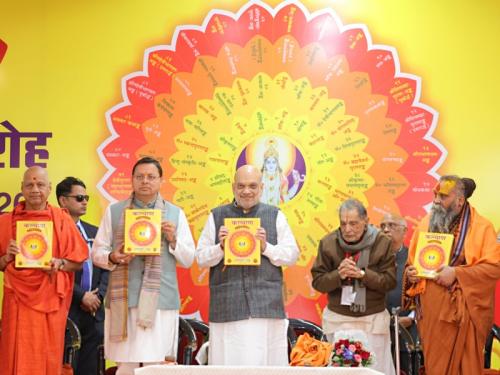MUKESH SHARMA Beijing, April 16 (IANS) As China spreads its economic footprint across the world, the Chinese universe of 'Made in China has gone beyond the pale of just manufacturing and supply chains. What's new, you would say? Made in China was always there and the world has got used to it. In fact, if the second largest economy pulls the plug on any object -- toys to telecom -- screams of 'supply chain disruption' begin to reverberate through the global trade ecosystem. The 'objectified' dependency on China is seldom an object of derision. While the developed world has become indifferent to the PRC label -- after the initial decades of brouhaha over labour rights and 'badly treated Chinese workers' giving way to the narrative of a country trying to enter the mainstream through international trade -- the less privileged parts of the globe don't have much of a choice. From Uganda to Ukraine and from Americas to Australia, the effect of the Chinese manufacturing prowess has overwhelmed the ecosystem. We may have failed to notice while some other countries stepped into the global manufacturing value chain, virtually ignored. Around three years ago, when Washington had started raising the heat on Beijing and sanctions were being piled up, triggering howls of the reining in of China, nations like Vietnam, Laos, Cambodia, Malaysia and the like tried to fill in gaps in the global supply chain. It was the time Meng Wangzhou, the chief financial officer of telecom giant Huawei, was arrested in Canada while she was transiting the north American nation. Meng, Washington said, had violated international sanctions and so was liable to be prosecuted. Her house incarceration had the entire Chinese state system up in arms over what was being called a cause of imminent decoupling of ties between China and the US. The newsrooms of Communist Party of China-run papers were buzzing with anti-US propaganda, so much so that even journalists in the office of a tabloid started complaining about the publication being the "PR agency of Huawei". Then Beijing was in as much a denial mode over the wrongdoing by the senior Huawei executive as it would later be defending itself against allegations of being behind the origin of Covid-19. The Made in China tag on the novel coronavirus that gave birth to the pandemic had millions nodding in approval and global indignation mounted against the country that kept denying the allegation. The World Health Organization's official probe into the origins of novel coronavirus drew a blank, pitting the world health body against an indignant international community that believes the east Asian nation was culpable. So, the 'Made in China' tag is here to stay with all the memes it evokes and the helpless indignation it generates -- whether it be objects or the virus or the unique polity China calls democracy. It is this political system that Beijing calls 'democracy with Chinese characteristics'. This 'Made in China' label to the political system comes in addition the tag the country or the Communist Party of China has given even to millennia-old institutions like Buddhism. The 'Sinicisationof religion', as Beijing calls the distortion it lends to faith, is also a Made in China tag. So is the inclusion of President Xi Jinping's name into the constitution of the Communist Party of China. Now staring at an unprecedented third term, the Chinese leader became the only one besides Communist icon Mao Zedong to have his name enshrined in the party charter. Xi, himself an institution in the most populous country, has been behind the Sinicisation of religion campaign for the last few years. Late last year, he called for tightening controls on religion and asked for stricter oversight of all faiths. "Religious activities should be carried out within the scope stipulated by laws and regulations ... and should not interfere with educational, judicial and administrative affairs as well as social life," Xinhua News Agency had quoted Xi as saying in late 2021. That's another Made in China label. Even if you may have heard of Sinicisation of religion, chances are that you might not have come across "Xi Jinping Thought on Socialism with Chinese Characteristics for the New Era". One more example of something that is 'Made in China,' the thought is included in the education curriculumand will be taught to students - from school to university. For the uninitiated, Made in China here implies something that is unique to the country, and is unlikely to be practised anywhere else. So, the 'Made in China' label isn't only about small tags hidden inside clothing. It denotes a phenomenon that has engulfed entire ecosystems - from overwhelming construction in the form of the Belt and Road Initiative outside the country to intense indoctrination inside. The effect outside the country is rather visible in the form of bridges, ports and roads and some wrecked economies probably as a result of Chinese financial intrusion. What's happening inside the nation due to sinicisation and the like will take time to be visible.
The Great Wail of China: A pervasive and perilous phenomenon
- by Rinku
- April 16, 2022 2 minutes

The Great Wail of China: A pervasive and perilous phenomenon










